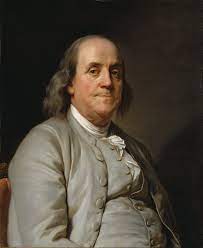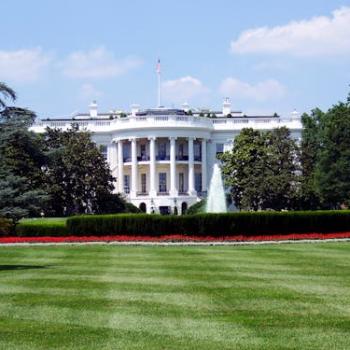Benjamin Franklin (1706-1790) was one of the foremost founders of the United States of America. He was born in Boston to devout Christian parents who were Puritans. As members of its famous Old South Church, they embraced Calvinist theology and so taught their children. Calvinism emphasizes divine sovereignty in human affairs to the extent that all acts in the universe, thus all human actions, are preordained, predetermined by God so that there is no such thing as the freedom of humans to choose. Benjamin’s father Josiah saw spiritual potential in his youngest son Benjamin. So he directed him as a teenager toward Congregational ministry.
But when Benjamin Franklin was fifteen years old, he read lectures by the scientist Robert Boyle which sought to counter Deism with orthodox Christian belief. Benjamin said the published lectures achieved the opposite purpose in him. They caused him to then proclaim himself a Deist because he believed that the principles of Deism, which Boyle set forth and attempted to refute, made more sense to young Benjamin than Boyle’s arguments against them.
Several of the founding fathers of the USA were Deists or moderately so. Thomas Jefferson was a Deist. A foremost difference between post-apostolic, orthodox Christianity and Deism was that the former tenaciously asserts that Jesus of Nazareth was both fully man and fully God, as set forth especially in the Nicene Creed of 325, whereas Deism respects Jesus as a moral teacher yet does not regard him as divine. (See my book, The Restitution of Jesus Christ (2008, 600 pp.)
Benjamin Franklin’s life seemed to portray someone whose religious beliefs were somewhere between those of orthodox Christianity and Deism. Benjamin always held onto belief in a personal God who created the universe and sometimes acted in the affairs of humankind. Deists believed in some divine providence, especially regarding the origin of the universe, though they were divided on whether or not God was a personal being. But they unanimously surmised that the Deity left creation to the outworking of natural laws and therefore did not intervene in the affairs of humankind. Deists believed that religion ought to be based solely on reason, thus rejecting the concept of divine revelation to humans and thus divine inspiration of the Bible.
At age 51, Benjamin Franklin–who had been trained as a printer and publisher–wrote, “Without the Belief of a Providence that takes Cognizance of, guards and guides, and may favour particular Persons, there is no Motive to Worship a Deity, to fear its Displeasure, or to pray for its Protection.” Franklin even wrote his own prayers and wrote and published an alteration of Jesus so-called Lord’s Prayer for what he thought was more clarity. And at the Constitutional Convention held in Philadelphia in July, 1987, Franklin suggested he begin with prayer partly as an attempt to overcome political differences. But the motion failed because it was thought such prayer should be delivered by an ordained minister for which the Convention had no funds to support. I think it would have been better to forget clergy and do it themselves.
Six weeks before Benjamin Franklin died, at the age of 84, Ezra Styles, the president of Yale College, wrote a letter to Franklin asking if he would commit his religious beliefs to writing. Not only had Franklin never done this, he surprisingly wrote to Styles revealing that no one had ever asked him to do that. So, Franklin obliged, and the following is what he wrote:
“You desire to know something of my religion. It is the first time I have been questioned upon it. But I cannot take your curiosity amiss, and shall endeavor in a few words to gratify it. Here is my creed:
“I believe in one God, the creator of the universe, that he governs by his providence, that he ought to be worshipped, that the most acceptable service we render to him is doing good to his other children, that the soul of man is immortal, and will be treated with justice in another life respecting its conduct in this.
“As to Jesus of Nazareth, my opinion of whom you particularly desire, I think his system of morals and his religion, as he left them to us, the best the world ever saw or is likely to see; but I apprehend it has received various corrupting changes, and I have, with most of the present dissenters in England, some doubts as to his divinity; though it is a question I do not dogmatize upon, having never studied it, and think it needless to busy myself with it now, when I expect soon an opportunity of knowing the truth with less trouble.”
So, witty Benjamin Franklin believed in a personal God who humans should worship, a God who enters into the affairs of humans and who is worthy of their prayers. Franklin also believed in an immortal soul, so that humans after death will be judged by God. But Franklin doubted Jesus was divine even though he held him in great respect, as did Thomas Jefferson. As to the main dogma that Christians believe about Jesus–that he died on the cross for their sins in order to actuate God’s forgiveness and to attain God’s salvation–Franklin does not address here in his creed. That was a central belief that he would have been taught growing up in his family–which is often called “atonement,” yet there are many theories about it–but one that thoroughgoing Deists firmly rejected.

















